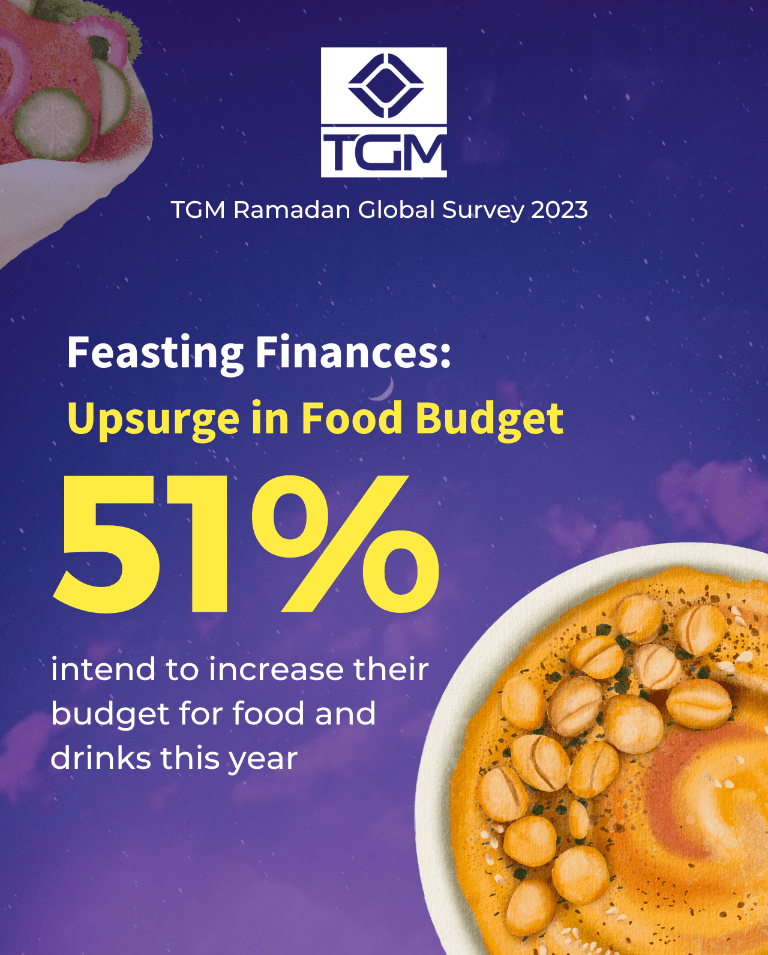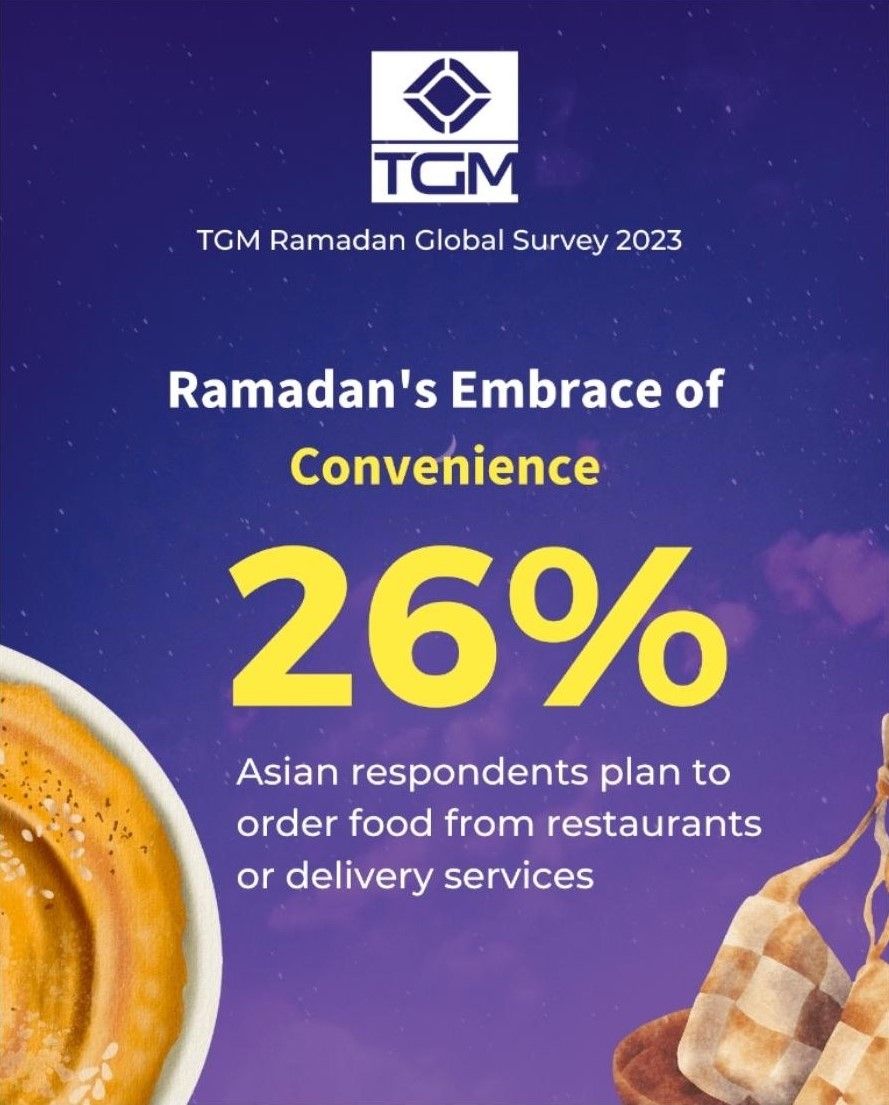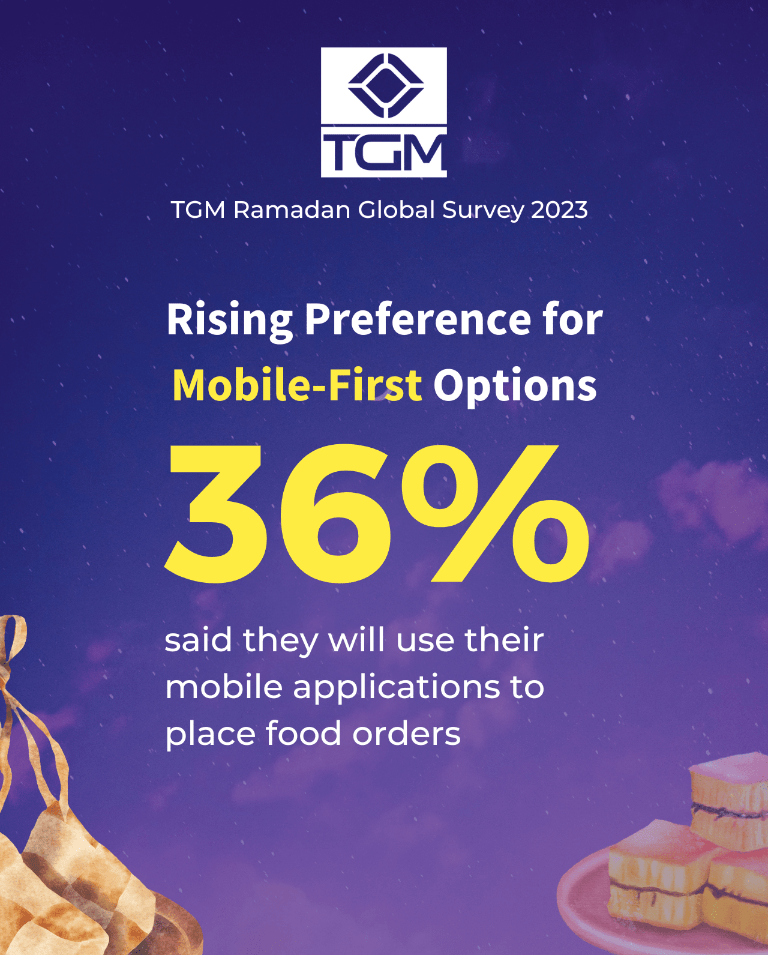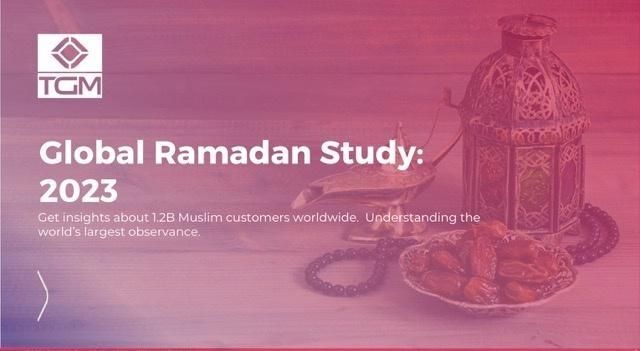26% of Asian respondents now rely on local services as well as food delivery services to order their meals, TGM Research study reveals
Convenience has become a cornerstone of modern lifestyle and Ramadan is no exception.



Feasting Finances: Upsurge in Food Budget
For while the fast may entail abstaining from food and drink, it is not solely about deprivation. Rather, it is an opportunity to express gratitude and celebrate the bounty of life. Food consumption during Ramadan is higher than one might expect, defying common misconceptions and emphasizing the central role that food plays in the cultural and social fabric of this holy month. According to TGM Ramadan Global Survey 2023, more than half of the participants divulged their intention to allocate a larger portion of their budget towards gastronomic indulgence.
Ramadan's Embrace of Convenience: A Modern Twist on Traditional Celebrations
Asian families in particular are reinventing their celebration customs to suit the demands of modern living. Instead of spending hours preparing meals, 26% now rely on local services as well as food delivery services to easily obtain their meals. It is estimated that every year, up to 47% of Muslims in Indonesia make the choice to order food outside their home in order to serve their eating needs during this month-long period. This demonstrates impressive growth in the food delivery sector in Indonesia, where delivery apps are now becoming increasingly popular opportunities for both businesses and consumers alike.
Although not as prominent as in Asia, the Middle East has also experienced a notable surge in the food delivery sector during the holy month of Ramadan, with 18% of the population opting for this convenient service. The region’s lower adoption rate of food delivery may be attributed to inadequate digital adoptions and limited operational proficiency among service providers, ultimately resulting in their reluctance to embrace this service.
Rising Preference for Mobile-First Options
Ramadan 2023 is coming!
Would you like to know how it will look this year? Get insights from the world's biggest Ramadan study.
